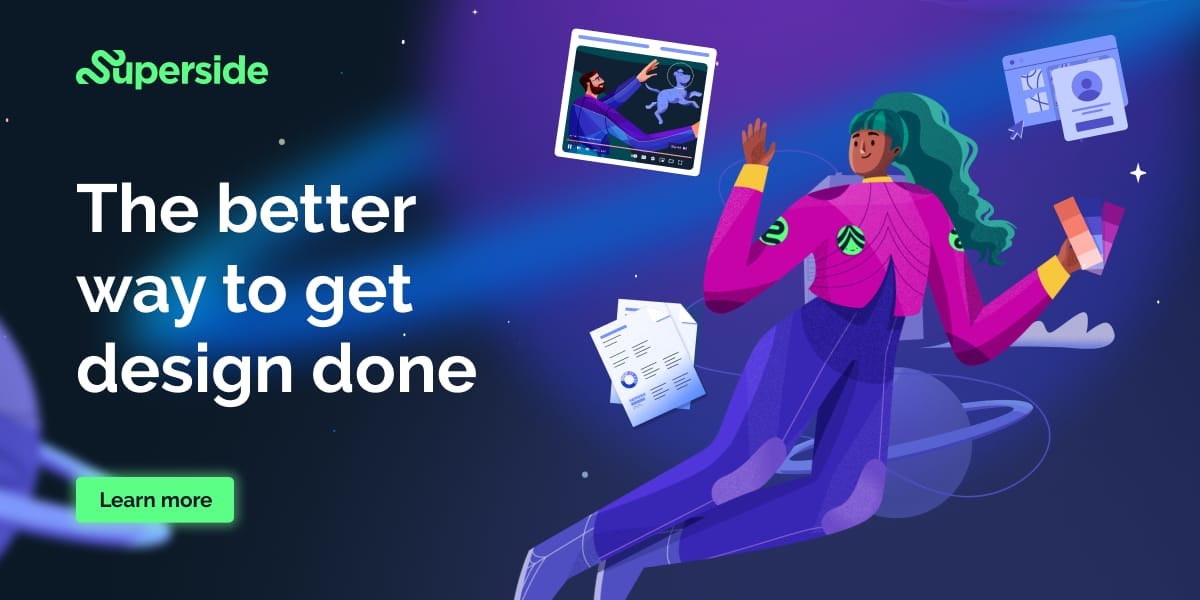New York Times Sues Microsoft and OpenAI
Microsoft announced(Legal Cover) new Copilot Copyright Commitment for customers
Sponsored by
Graphic design, websites, ad copy–it’s all on-brand and on-time in 24hrs
New York Times Sues Microsoft and OpenAI, Alleging Copyright Infringement
Microsoft announced new Copilot Copyright Commitment for customers
Need marketing assets? Like Yesterday?
Maybe your brand launch is tomorrow.
Maybe you have no hiring budget (been there).
Or maybe your team is simply understaffed and overworked.
Regardless, if you need designs ASAP, you need Superside. They deliver high-quality, on-brand assets in as little as 24 hours.
Yup, Superside hires the top 1% of creatives across the globe, so you don’t have to vet freelancers or make any hasty hires in a pinch.
Why Superside?
Graphic design, websites, ad copy–it’s all on-brand and on-time
Used by over 450 companies like Google, Meta, Reddit, and Shopify
Transparent pricing from the start to save you up to 50%
TL;DR: It’s a design subscription service tailored for MM and ENT companies.
Start using Superside!
New York Times Sues Microsoft and OpenAI, Alleging Copyright Infringement
The New York Times has filed a lawsuit against OpenAI and Microsoft, accusing them of copyright infringement. The lawsuit alleges that the companies used millions of articles published by the NYT without permission to train their AI models, including OpenAI's ChatGPT and Microsoft's Copilot. The lawsuit claims that these AI models can generate outputs that recite NYT content verbatim, closely summarize it, and mimic its expressive style.
The lawsuit does not specify a monetary demand but states that the defendants should be held responsible for "billions of dollars in statutory and actual damages". The lawsuit could potentially shape the legal boundaries of generative AI technologies and their interaction with copyrighted content.
The NYT argues that these AI models threaten high-quality journalism by hurting the newspaper's ability to invest in its journalism and by depriving it of subscription, licensing, advertising, and affiliate revenue. The lawsuit also claims that these AI models compete with the content they are trained on.
This lawsuit is the first of its kind from a major news publisher against OpenAI and Microsoft. Other copyright holders, including major music companies, authors, and comedians, have also sued generative AI companies on similar grounds....
Originaly by Alexsandra Bruell of The Wall Street Journal
Microsoft announced new Copilot Copyright Commitment for customers
Microsoft’s AI-powered Copilots are changing the way we work, making customers more efficient while unlocking new levels of creativity. While these transformative tools open doors to new possibilities, they are also raising new questions. Some customers are concerned about the risk of IP infringement claims if they use the output produced by generative AI. This is understandable, given recent public inquiries by authors and artists regarding how their own work is being used in conjunction with AI models and services.
To address this customer concern, Microsoft is announcing our new Copilot Copyright Commitment. As customers ask whether they can use Microsoft’s Copilot services and the output they generate without worrying about copyright claims, we are providing a straightforward answer: yes, you can, and if you are challenged on copyright grounds, we will assume responsibility for the potential legal risks involved.
Specifically, if a third party sues a commercial customer for copyright infringement for using Microsoft’s Copilots or the output they generate, we will defend the customer and pay the amount of any adverse judgments or settlements that result from the lawsuit, as long as the customer used the guardrails and content filters we have built into our products….
by Brad Smith, Vice Chair and President, Hossein Nowbar, CVP and Chief Legal Officer of Microsoft
Cheers! SBalley Team


